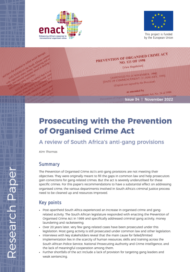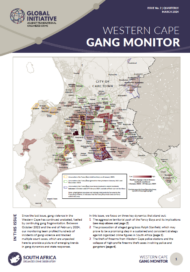Posted on 27 Jan 2023
access the original post on enactafrica.org
The Prevention of Organised Crime Act’s anti-gang provisions are not meeting their objectives. They were originally meant to fill the gaps in common law and help prosecutors gain convictions for gang-related crimes. But the act is severely underutilised for these specific crimes.
For this paper’s recommendations to have a substantial effect on addressing organised crime, the various departments involved in South Africa’s criminal justice process need to be cleaned up and resources improved.
Key points:
- Post-apartheid South Africa experienced an increase in organised crime and gangrelated activity. The South African legislature responded with enacting the Prevention of Organised Crime Act in 1999 and specifically addressed criminal gang activity, money laundering and racketeering.
- Over 20 years later, very few gang-related cases have been prosecuted under this legislation. Most gang activity is still prosecuted under common law and other legislation.
- Interviews with key stakeholders reveal that the main cause for failed/limited implementation lies in the scarcity of human resources, skills and training across the South African Police Service, National Prosecuting Authority and Crime Intelligence, and the lack of meaningful cooperation among them.
- Further shortfalls of the act include a lack of provision for targeting gang leaders and weak sentencing.




